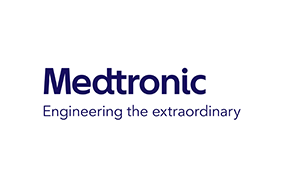Healthcare Inequity: Heart Disease in Women
The healthcare system is often biased against women when it comes to heart disease
Published 03-03-23
Submitted by Medtronic
When it comes to detecting and treating heart disease, the healthcare system often tilts in favor of men.
“Heart disease is regularly undetected, misdiagnosed and undertreated in women,” said Dr. Courtney Jordan Baechler, MD, a preventive cardiologist at the Minneapolis Heart Institute and the medical director of health equity and promotion at the Minneapolis Heart Institute Foundation. “Part of the reason is that historically, clinical heart research mainly studied men. So detection, treatment and standards of care are often biased in their favor.”
For example, even though men and women generally have differing physiology, several heart disease tests are geared more toward the male anatomy, often leading to missed diagnosis in women.1
“For instance, angiograms are currently the gold standard of care in detecting obstruction of the main coronary arteries,” said Dr. Jordan Baechler. “But angiograms alone sometimes can’t see the smaller vessels and intracoronary imaging during angiogram or an MRI may be the best way to diagnose small vessel disease in women.”
Research is also finding that certain conditions specific to women impact their hearts, 2,3 and that symptoms of heart problems can be significantly different for women than men.4
But even doctors aren’t always aware of the differences, and the reasons lie in the data. Research has found that women patients are included in less than 40 percent of clinical studies.5
“The majority of the medical literature is based on evidence collected from just one part of the population—predominantly white males,” said Dr. Alan Cheng, chief medical officer of the Cardiac Rhythm Management operating unit at Medtronic. “The assumption has been that the information can be entirely extrapolated to the rest of the population, but we’re beginning to appreciate that’s not always the case.”
According to Dr. Cheng, Medtronic is diversifying the clinical research it does on its medical devices to be more inclusive. One such clinical study, involving heart valve replacement, is enrolling primarily women.
“The results from this trial will provide important clinical insight into a currently underrepresented patient population in TAVR literature,” said Dr. Jeffrey Popma, Vice President and Chief Medical Officer of the Coronary, Renal Denervation and Structural Heart operating unit at Medtronic. “As we generate new evidence, physicians will have better guidance on how to treat patient groups not included in prior clinical studies, and that will be better for all patients.”
“It’s very exciting to see healthcare looking at this issue through a more inclusive lens,” added Dr. Jordan Baechler. “We’re moving in the right direction. We need to quickly get to a place where the science standard reflects the populations that we’re serving.”
Did you know? Symptoms of heart attack can be different for women and men. Learn more.
-------------------------------------------------------------------------------------------------------
1 https://brighamhealthhub.org/heart-disease-7-differences-between-men-and-women/
2 http://secondscount.org/treatments/treatments-detail-2/risk-factor-modification-lifestyle-changes-women-c?gclid=Cj0KCQiA_bieBhDSARIsADU4zLesKePK8PDMv3-f-4s_SVPMNk1gI1S2EXo7yo9e1SaUREQtqkklF5AaAnWUEALw_wcB#.Y87G33bMJPY
3 https://brighamhealthhub.org/heart-disease-7-differences-between-men-and-women/
4 https://brighamhealthhub.org/heart-disease-7-differences-between-men-and-women/
5 https://newsroom.heart.org/news/women-still-underrepresented-in-clinical-research-science-and-medicine-that-could-save-them-from-their-no-1-killer

Medtronic
Medtronic
Bold thinking. Bolder actions. We are Medtronic.
We lead global healthcare technology and boldly attack the most challenging health problems facing humanity by searching out and finding solutions. Our Mission — to alleviate pain, restore health, and extend life — unites a global team of 90,000+ passionate people. Powered by our diverse knowledge, insatiable curiosity, and desire to help all those who need it, we deliver innovative technologies that transform the lives of two people every second, every hour, every day. Expect more from us as we empower insight-driven care, experiences that put people first, and better outcomes for our world.
In everything we do, we are engineering the extraordinary.
More from Medtronic

